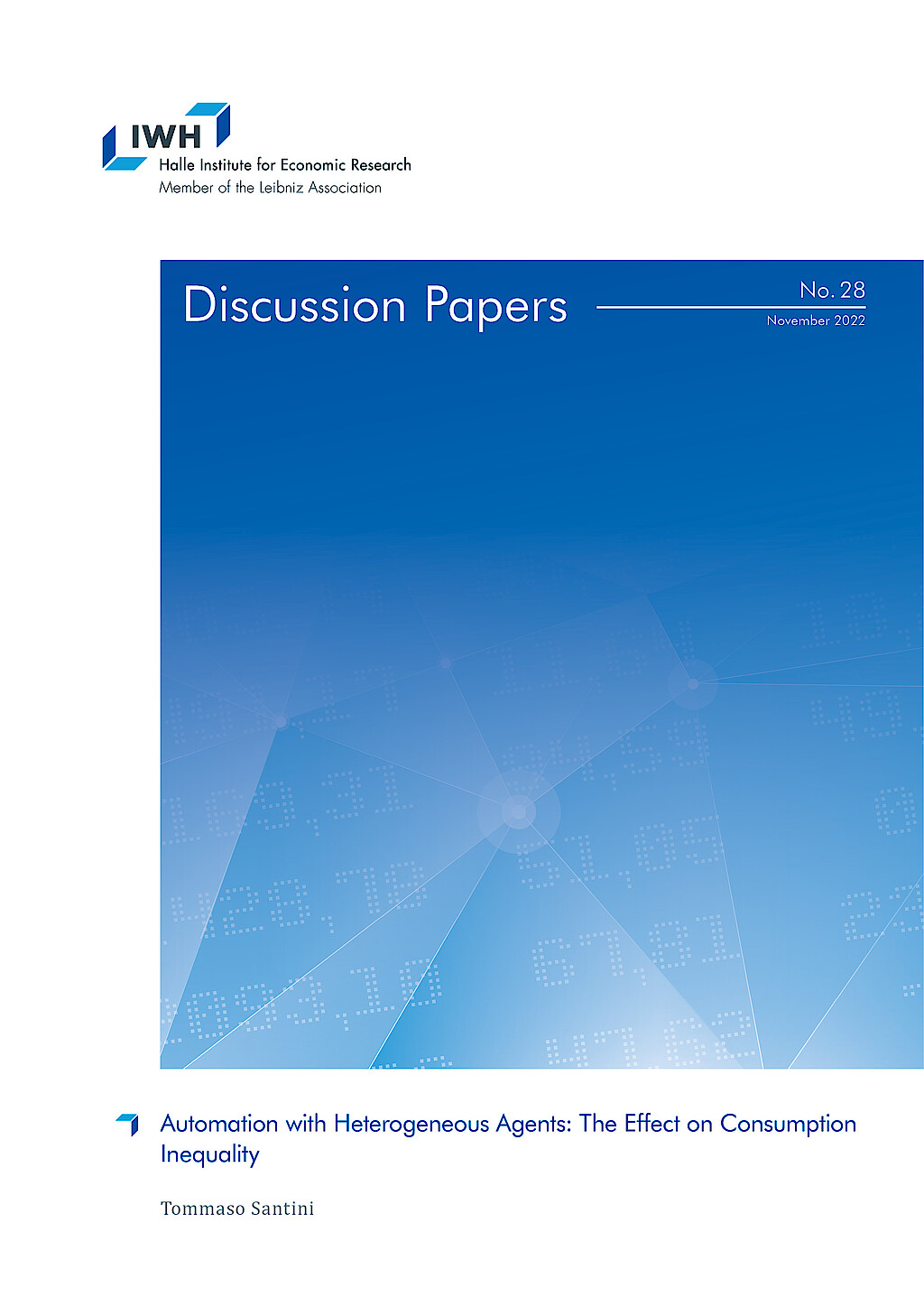
Automation with Heterogeneous Agents: The Effect on Consumption Inequality
In this paper, I study technological change as a candidate for the observed increase in consumption inequality in the United States. I build an incomplete market model with educational choice combined with a task-based model on the production side. I consider two channels through which technology affects inequality: the skill that an agent can supply in the labor market and the level of capital she owns. In a quantitative analysis, I show that (i) the model replicates the increase in consumption inequality between 1981 and 2008 in the US (ii) educational choice and the return to wealth are quantitatively important in explaining the increase in consumption inequality.





